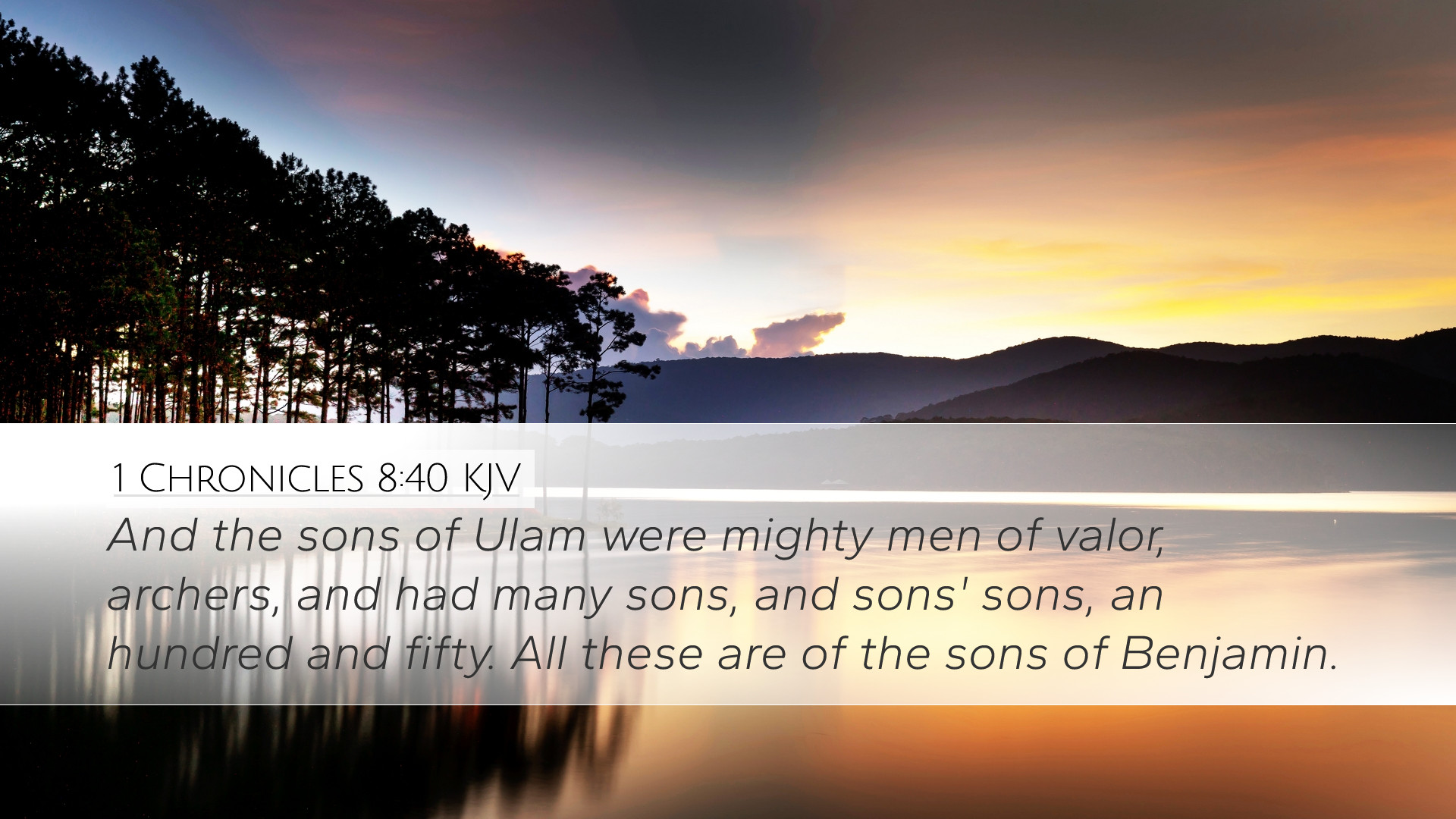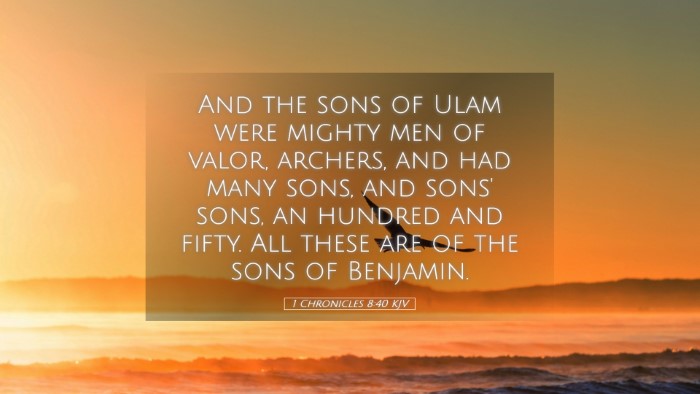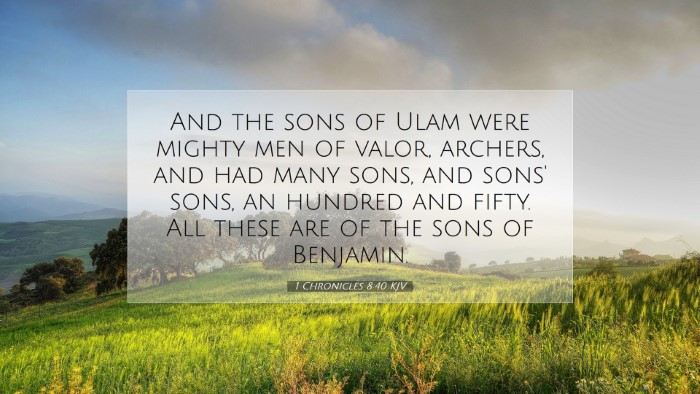Commentary on 1 Chronicles 8:40
Verse Context: 1 Chronicles 8:40 states, "And the sons of Ulam were mighty men of valour, archers, and had many sons, and sons’ sons, even a hundred and fifty. All these are of the sons of Benjamin." This verse highlights the lineage of Benjamin, particularly focusing on Ulam, his sons, and their martial prowess.
Summary of Key Themes
- Valour and Strength: The mention of "mighty men of valour" signifies not just physical strength but also courage and bravery in the face of battle.
- Archery as a Skill: Archers were valued in ancient warfare; thus, this detail points to both their military capability and their role in Israel's defense.
- Generational Influence: The focus on Ulam's descendants underlines the importance of legacy and familial blessing in Biblical genealogies.
Historical Context
In examining the genealogies presented in 1 Chronicles, we must appreciate the context of the post-exilic community. The Chronicler's audience was primarily the returned exiles who needed to re-establish their identity and heritage. Highlighting notable figures like Ulam serves to reassure the community of their noble lineage and God’s faithfulness through generations.
Insights from Commentaries
Matthew Henry
Matthew Henry notes that Ulam—a descendant of Benjamin—is emblematic of God's providential guidance over the tribes of Israel. He emphasizes the mention of Ulam's sons as a testimony to God's promise that Israel would flourish and multiply amidst adversity. Henry cites the significance of valour among Ulam's descendants, interpreting their martial abilities as essential for the survival and defense of the nation.
Albert Barnes
Albert Barnes elaborates on the martial aspect of Ulam's lineage, noting that archers were critical in ancient warfare. He connects Ulam’s capacity as an archer to the overall militaristic culture of Israel during the period of the Judges and early monarchy. Furthermore, Barnes suggests that the reference to the number of sons (150) indicates a prosperous family, reflecting God's blessings on Ulam's house.
Adam Clarke
Adam Clarke provides insight into the personal qualities that might have characterized Ulam and his sons. He proposes that their skills as archers signify deftness, precision, and strategic acumen—qualities necessary for any military strategist. Clarke also suggests that this verse highlights the fulfillment of God's promises regarding the House of Benjamin, encouraging the new Israelite community by recalling a time of strength and valor.
Theological Implications
This verse encapsulates several theological themes worth exploring:
- Divine Sovereignty: God's hand can be seen throughout the genealogical record, affirming that He orchestrates history and maintains a covenantal relationship with His people.
- Legacy and Heritage: The significance of genealogies in the Old Testament underscores the importance of familial faithfulness and continuity in God’s plan.
- Battle Readiness: As Christians, the emphasis on being "mighty men of valour" is a call to spiritual warfare, urging believers to be prepared and equipped for the battles they face today.
Practical Application
For pastors, students, and theologians, 1 Chronicles 8:40 serves as a prompt to consider the importance of legacy in their own lives and ministries. Just as Ulam's descendants were mighty and numerous, congregations today should aspire to raise up the next generation of believers equipped for spiritual battles.
Moreover, this verse challenges readers to evaluate what type of experience they are cultivating within their families and communities. Are we fostering an environment where courage, Faith, and strength are celebrated?
Conclusion
In conclusion, 1 Chronicles 8:40 is more than a mere genealogical note; it is a powerful reminder of God's providential care for His people, the importance of valor in the face of trials, and the significant role that legacy and heritage play in God's redemptive narrative. By understanding this verse in its broader context, one appreciates the weight of family history and the continued call to engage in the spiritual battles of our time.


